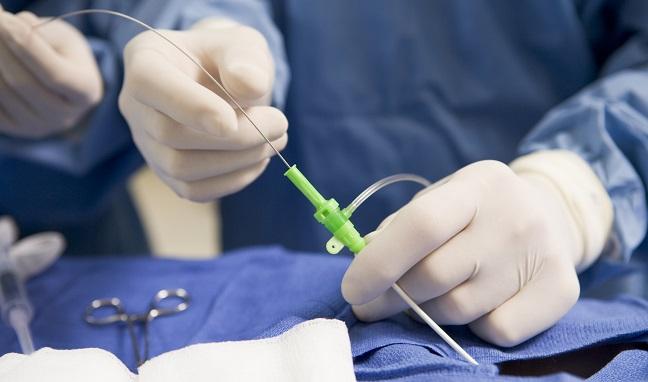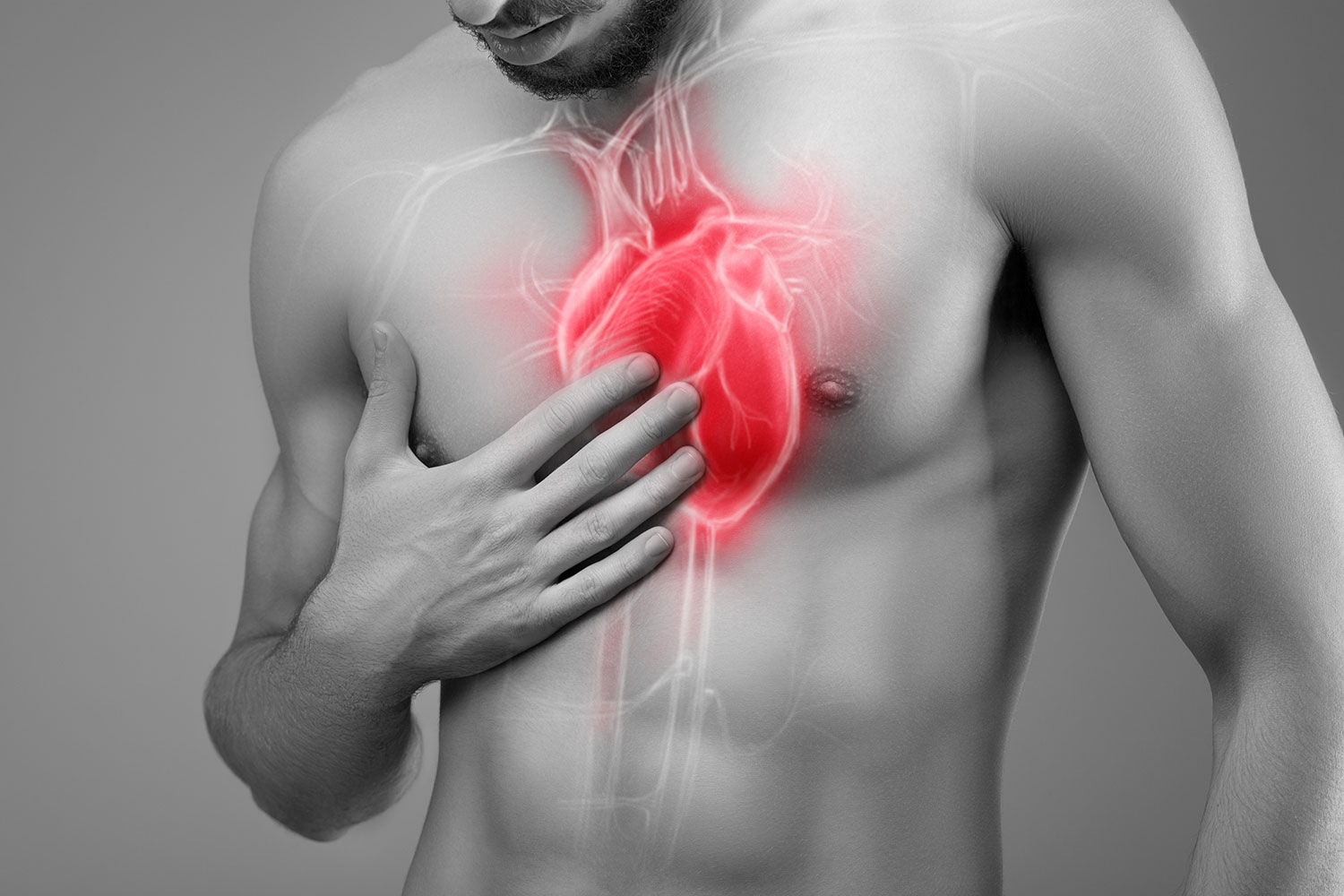What Cardiology Jupiter patients often misunderstand (and the truth)
What Cardiology Jupiter patients often misunderstand (and the truth)
Blog Article
Understanding the Significance of Cardiology in Modern Medical Care Services
Cardiology plays a critical role in modern medical care, particularly as heart problem continues to be the leading cause of mortality worldwide. Developments in diagnostics and therapy have actually changed person care, allowing earlier treatments and boosted end results. The change towards preventive cardiology empowers people to handle their wellness proactively. As technology remains to progress, the integration of ingenious solutions may better redefine cardiology's impact on public health, prompting a better exam of emerging patterns and their implications.
The Occurrence of Cardiovascular Disease and Its Influence On Public Health And Wellness
Heart illness remains the leading cause of death worldwide, its influence prolongs far beyond private patients to impact public wellness systems and economic situations. The high occurrence of heart condition places a significant strain on health care sources, necessitating boosted funding for treatment, rehabilitation, and avoidance programs. Public health and wellness efforts should deal with danger factors such as excessive weight, cigarette smoking, and sedentary way of lives, which contribute considerably to the increasing incidence of heart conditions.Moreover, the financial burden linked with heart disease is enormous, incorporating not only straight clinical expenses however likewise indirect expenditures associated with shed performance and premature death. Communities encounter difficulties in taking care of these costs, often causing disparities in healthcare gain access to and outcomes. As the population ages and lifestyle-related risks proceed to intensify, the seriousness for efficient cardiology treatments ends up being vital. Subsequently, addressing heart problem is not only an issue of specific wellness however likewise a critical public health and wellness concern.
Breakthroughs in Heart Diagnostics and Imaging Techniques
Recent advancements in cardiac diagnostics and imaging methods have actually reinvented the area of cardiology, improving the capacity to identify and check heart diseases. Methods such as cardiac MRI, CT angiography, and echocardiography have actually become significantly sophisticated, providing comprehensive photos of cardiac frameworks and features. These modalities permit the very early recognition of problems like coronary artery illness, heart failure, and valvular disorders.Moreover, innovations in non-invasive diagnostics, such as wearable modern technology and remote tracking devices, have equipped clients and doctor. These devices help with real-time monitoring of heart rhythms and other important signs, resulting in timely treatments. Additionally, fabricated knowledge is being incorporated right into imaging evaluation, enhancing precision and efficiency in medical diagnosis.
Innovations in Treatment Options for Heart Conditions
Recent developments in cardiology have led to substantial innovations in therapy options for heart disease. These consist of innovative surgical strategies that enhance procedural end results and emerging medicines that offer new opportunities for therapy. As the area evolves, these technologies play a vital role in boosting individual care and outcomes.
Advanced Surgical Techniques
Advancements in medical methods have changed the landscape of cardiology, offering brand-new hope for clients with heart conditions. Minimally intrusive treatments, such as catheter-based interventions, have substantially decreased recuperation times and hospital remains. Strategies like robotic-assisted surgery boost accuracy, enabling doctors to navigate complex anatomical structures with greater accuracy. Additionally, developments in imaging modern technology promote real-time visualization throughout treatments, enhancing outcomes. Transcatheter aortic shutoff substitute (TAVR) exemplifies a development in treating aortic stenosis, enabling valve substitute without open-heart surgical treatment. In addition, hybrid techniques that incorporate medical and catheter-based techniques provide customized remedies for different cardiac issues. These sophisticated medical methods not only boost patient safety and security but likewise expand treatment alternatives, highlighting the crucial role of technology in modern-day cardiology techniques.
Arising Treatments and medications
As the landscape of cardiology proceeds to progress, emerging drugs and treatments play an essential duty in boosting therapy alternatives for heart disease. Technologies such as novel anticoagulants and advanced lipid-lowering agents have transformed the management of cardio conditions, considerably decreasing person morbidity and death. Additionally, the advancement of genetics therapies and regenerative medication offers appealing avenues for dealing with problems formerly deemed incurable. Professional trials are consistently revealing the effectiveness of these therapies, pushing the borders of typical treatments. The combination of electronic wellness modern technologies helps with customized medicine, permitting for tailored therapy plans based on genetic and way of life variables. Jointly, these developments underscore the vibrant nature of cardiology, boosting individual end results and redefining standards of treatment in modern health care.
The Role of Preventive Cardiology in Patient Treatment
Preventive cardiology plays a crucial duty in client treatment by concentrating on the recognition of danger aspects that add to heart problem. Via way of living modification methods and very early detection techniques, health care companies can efficiently lower the incidence of cardiovascular events - Cardiology care. This aggressive approach not only boosts patient outcomes however additionally promotes long-lasting wellness
Risk Aspect Recognition
While cardio illness stay a leading root cause of morbidity and mortality worldwide, reliable danger factor recognition offers as a cornerstone of preventative cardiology. Recognizing danger aspects such as hypertension, diabetic issues, family, and hyperlipidemia history is important for early treatment. Healthcare specialists use different evaluating approaches to review these factors, allowing for tailored safety nets. In addition, understanding a person's lifestyle options, such as smoking cigarettes and physical inactivity, even more educates danger analyses. This detailed examination allows medical professionals to establish individualized care plans targeted at mitigating risks. By focusing on danger aspect recognition, healthcare systems can enhance individual results and lower the total worry of heart diseases, inevitably adding to boosted public health and wellness methods and resource allowance.
Way Of Life Alteration Methods
A multitude of researches highlights the critical duty of way of life modification strategies in decreasing heart disease threat. These strategies include dietary changes, enhanced exercise, smoking cigarettes cessation, and weight monitoring. By taking on a heart-healthy diet rich in fruits, veggies, entire grains, and lean proteins, people can reduce cholesterol degrees and high blood Your Domain Name pressure. Routine physical task strengthens the heart and improves general cardio health and wellness. Furthermore, stopping smoking cigarettes significantly minimizes the threat of cardiovascular disease and enhances healing rates for those with status quo. Weight management even more adds to cardiovascular health by reducing various other risk factors such as diabetes and high blood pressure. Carrying out these way of life transforms not only advertises private well-being however additionally offers as a cornerstone of preventative cardiology in person treatment.
Early Discovery Strategies
Way of life modifications considerably add to reducing cardiovascular disease dangers, but they are most effective when coupled with early discovery methods. Preventive cardiology emphasizes the significance of determining possible heart concerns before they escalate into significant problems. Strategies such as high blood pressure surveillance, cholesterol testing, and progressed imaging innovations like echocardiograms play critical duties in assessing cardio health and wellness. Biomarkers and genetic screening likewise boost the precision of early detection, enabling tailored preventative strategies. Normal cardiac risk evaluations encourage doctor to interfere proactively, potentially stopping cardiac arrest and strokes (Dr Garcia). By integrating these early discovery methods right into regular treatment, patients can gain from timely lifestyle treatments and targeted therapies, inevitably enhancing end results and enhancing lifestyle
Integrating Innovation Into Cardiology Practices
As advancements in innovation remain to reshape different areas, the integration of innovative tools and systems into cardiology practices has actually ended up being essential for enhancing person treatment and outcomes. Telemedicine platforms permit cardiologists to check clients remotely, enhancing access to care while reducing the problem on health care facilities. Wearable tools, such as smartwatches, enable constant heart rate surveillance, alerting both physicians and people to prospective issues in real-time. Furthermore, expert system (AI) is being made use of to analyze vast amounts of heart data, helping in early diagnosis and individualized therapy plans. Advanced imaging methods, consisting of 3D echocardiography, enhance visualization of heart structures, causing a lot more specific treatments. Electronic health records (EHRs) improve patient details administration, guaranteeing that cardiologists have immediate access to critical data. With each other, these technological advancements are transforming cardiology, advertising proactive administration and boosted health and wellness results for patients with cardiovascular conditions.
The Value of Client Education and Engagement
Individual education and learning and involvement play a pivotal role in the monitoring of cardio health. By outfitting people with understanding concerning their problems, therapy choices, and way of life changes, doctor empower individuals to take an active role in their treatment. This aggressive method can cause enhanced adherence to recommended medications, dietary modifications, and exercise programs, inevitably minimizing the threat of complications.Engagement also promotes a solid patient-provider relationship, motivating open interaction and count on. When people really feel informed and entailed, they are more probable to voice issues and ask concerns, which can result in much better scientific outcomes. Furthermore, educational resources, such as workshops or electronic platforms, can boost understanding and advertise self-management approaches. On the whole, focusing on patient education and engagement is vital for boosting cardiovascular health, enhancing quality of life, and decreasing health care prices connected with heart diseases.
Future Fads in Cardiology and Their Prospective Impact

Regularly Asked Inquiries
What Way Of Life Modifications Can Reduce Cardiovascular Disease Risk?
The present concern addresses way of life modifications that can greatly minimize heart problem danger. Cardiology care. Adopting a well balanced diet plan, taking part in routine physical task, maintaining a healthy site web weight, taking care of stress, and staying clear of tobacco can significantly enhance cardio health
Exactly How Can I Identify Early Indications of Heart Problems?
Identifying very early signs of heart troubles includes monitoring symptoms such as breast discomfort, lack of breath, fatigue, and uneven heart beat. Prompt understanding of these signs can prompt required clinical assessment and intervention for much better outcomes.
What Are the Differences Between Cardiologists and Cardiac Surgeons?
The differences between cardiologists and heart cosmetic surgeons exist in their duties; cardiologists largely identify and take care of heart disease via non-invasive techniques, while heart cosmetic surgeons perform surgical treatments to correct architectural heart concerns. Each plays a vital, distinctive role.

How Typically Should I Obtain My Heart Health Checked?
The frequency of heart medical examination varies based on individual risk elements. Generally, grownups need to undertake assessments each to two years, while those with status quo might require even more constant analyses as suggested by health care experts.
What Function Does Genetics Play in Heart Problem Danger?
Genetics significantly affects heart illness risk, with domestic patterns showing inherited problems. Specific genetics can incline individuals to high blood pressure, cholesterol problems, and various other cardiovascular issues, highlighting the value of hereditary screening in evaluating heart wellness. Heart condition remains the leading cause of death globally, its effect prolongs much past individual clients to impact public wellness systems and economic climates. Public wellness initiatives have to deal with threat variables such as weight problems, smoking cigarettes, and inactive way of lives, which add considerably to the rising occurrence of heart conditions.Moreover, the financial burden linked with heart condition is immense, including not just straight medical prices however likewise indirect expenditures connected to lost performance and premature mortality. Preventive cardiology plays a crucial duty in client care by concentrating on the identification of threat variables that contribute to heart disease. Artificial intelligence (AI) and device learning are improving diagnostics and individual tracking, making it possible for early discovery of heart illness. The distinctions between cardiologists and cardiac cosmetic surgeons lie in their roles; cardiologists largely take care of and detect heart conditions via non-invasive techniques, while cardiac specialists do medical treatments to correct architectural heart concerns.
Report this page